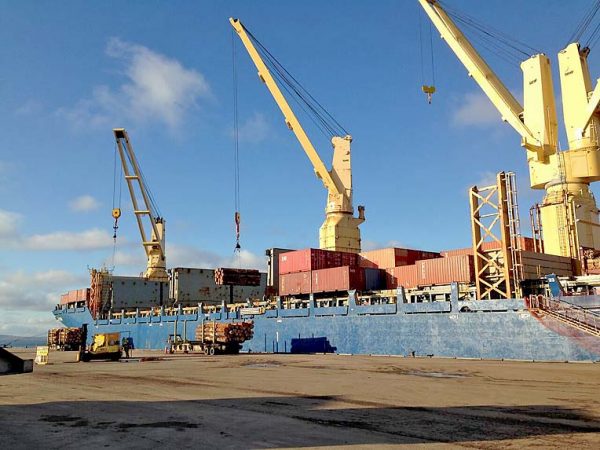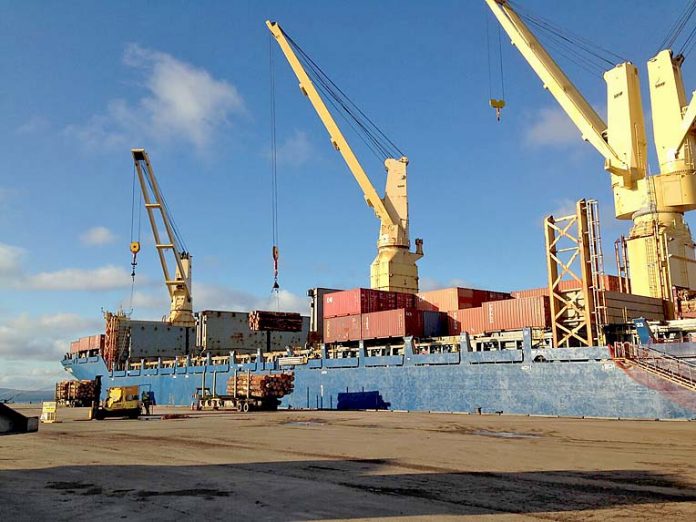
THE issue of log exports is expected to trigger robust discussion among council leaders this week as concerns continue over the volume of woodfibre flowing through the Port of Portland.
This comes as a South Australian parliamentary select committee – which will probe radiata pine wood fibre exports – calls for submissions from industry stakeholders and the community.
Exports are continuing to fuel unrest given fears over long-term log security for some processors and the loss of value-adding opportunities for the region.
The Port of Portland is also continuing to remain tight-lipped over the volume of radiata pine wood fibre exported from the deep sea marine export facility.
The port’s chief executive officer Greg Tremewen said he could not release specific statistics regarding radiata pine woodfibre exports for last financial year.
He said this information would need to be released by the individual woodfibre exporters.
Wattle Range Mayor Des Noll is leading the push for the Limestone Coast Local Government Association (LCLGA) to lodge a submission to the inquiry.
Council delegates from the region will discuss the issue at the organisation’s board meeting in Robe on Friday.
“For several months the timber industry in the state’s South East has been advocating for urgent action to save local jobs,” Mr Noll said.
“These jobs are in jeopardy because local timber processors are unable to secure a sustainable supply of fibre.”
He said local processors had approached the Wattle Range Council with their concerns and was seeking council to take a leadership role in supporting their concerns.
“A collective LC LGA submission will give a strong united voice of the concerns of the collective councils,” Mr Noll said.
Meanwhile, timber workers’ union Green Triangle secretary Brad Coates revealed the union planned to lodge a submission to the parliamentary inquiry.
He said water licensing on plantations as well as the need to grow value-adding sector were among the most pressing issues.
“We need to focus on value-adding in South Australia instead of exporting fibre,” the Construction Forestry Maritime Mining and Energy Union official said.
“A lot of the pulp log and woodchip could be processed in Australia.”
He suggested a pulp mill, pellet factory or even woodfire power station were among the opportunities possible.
Moreover, Mr Coates also warned current water licensing regulations were restricting plantation growth in South Australia.
He said forestry owners were expanding across the Victorian border where there were no water licensing but in South Australia plantation growth was stagnate.
“We could lose about one quarter of the estate within 10 to 15 years. This is the real issue of concern,” the regional union leader said.
He warned the processing sector faced a “critical mass shortage” if this occurred.
Mr Coates said some post manufacturers were struggling to secure long term contracts or did not want to pay for long term contracts.
However, he argued there was not a sawlog shortage given some processors were cutting back on production due to the slowing domestic housing market.
Submissions to the Legislative Council of SA select committee inquiry close Friday, September 20.
Contact sctimberlimestonecoast@parliament.sa.gov.au with submissions.








